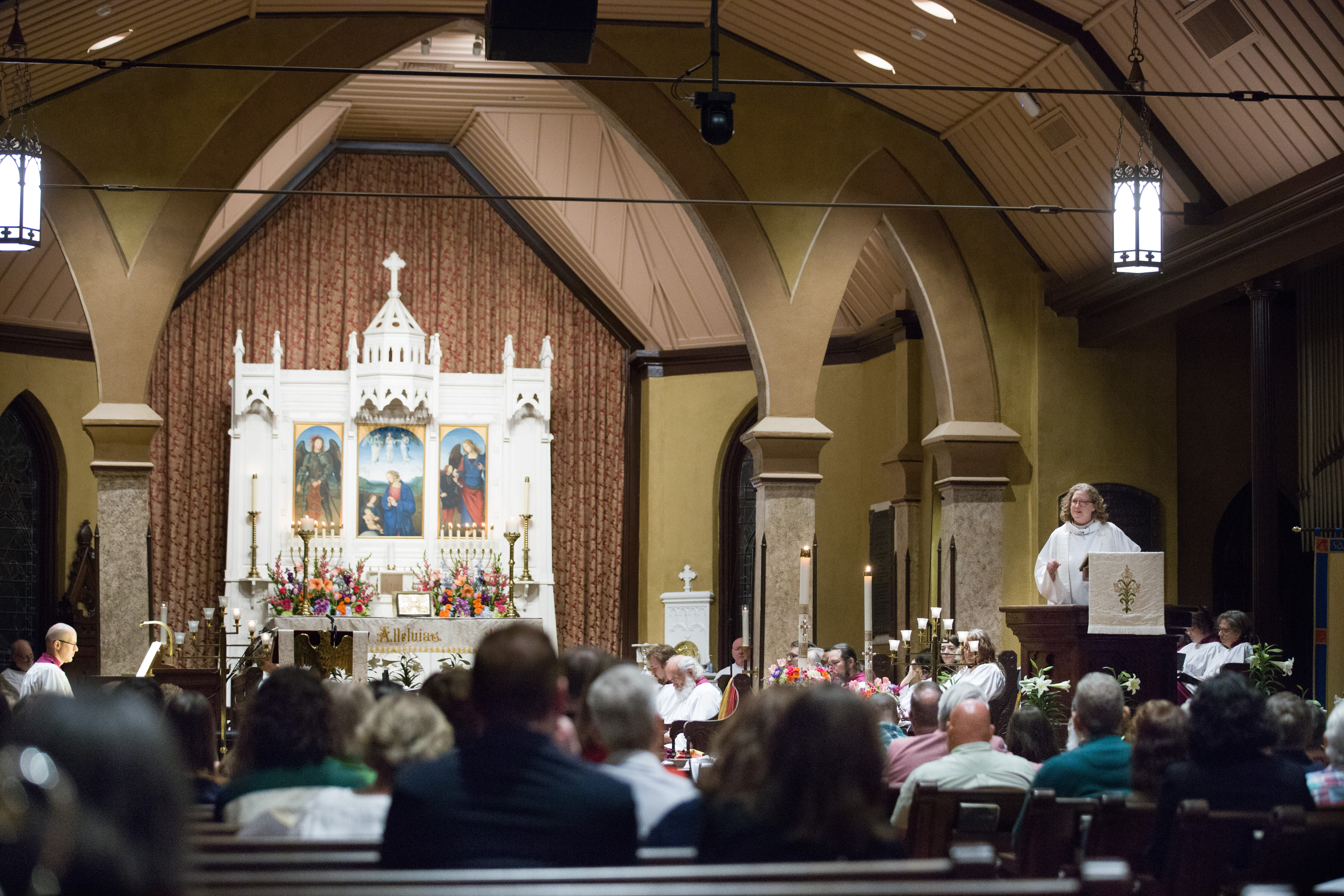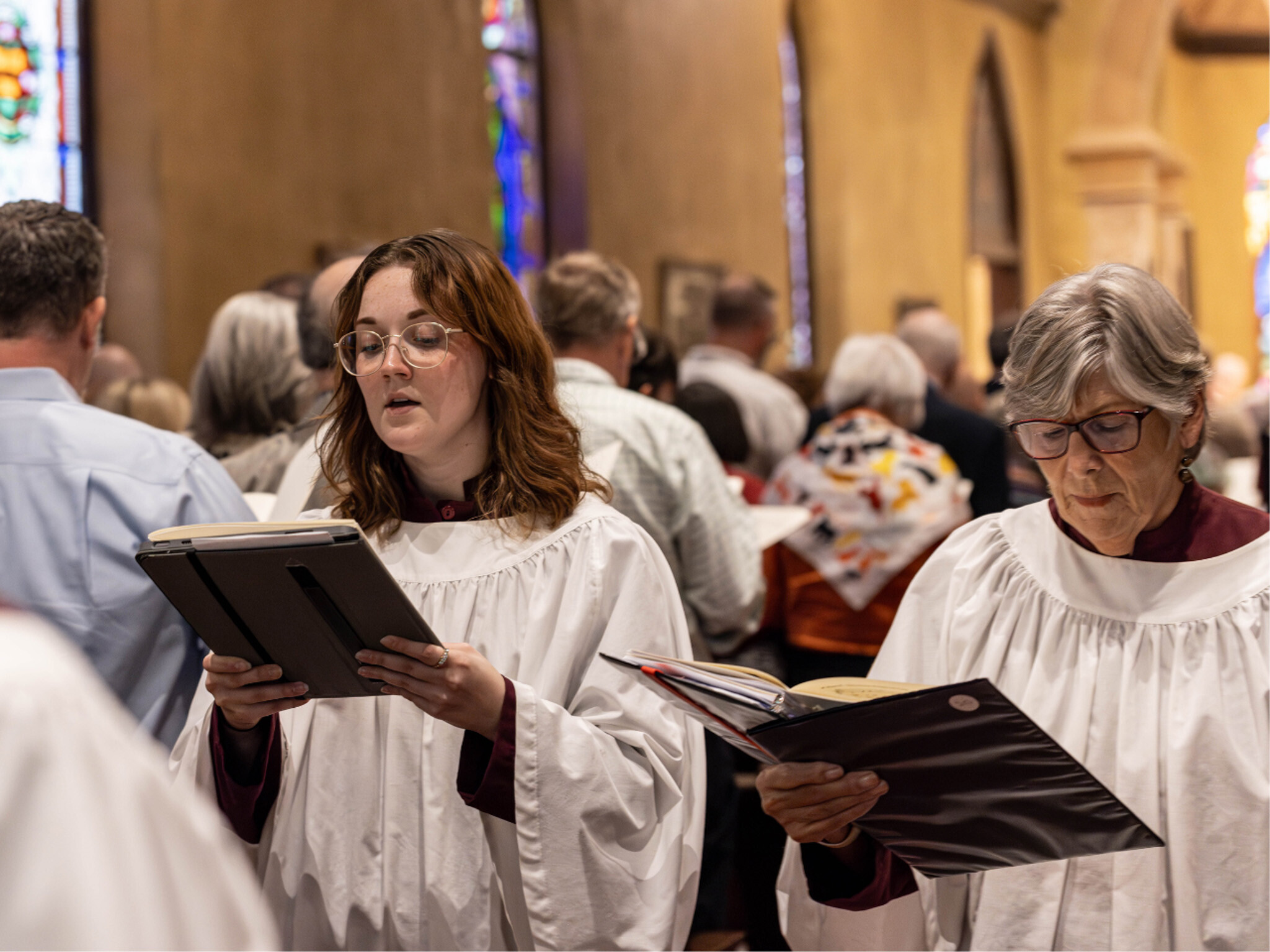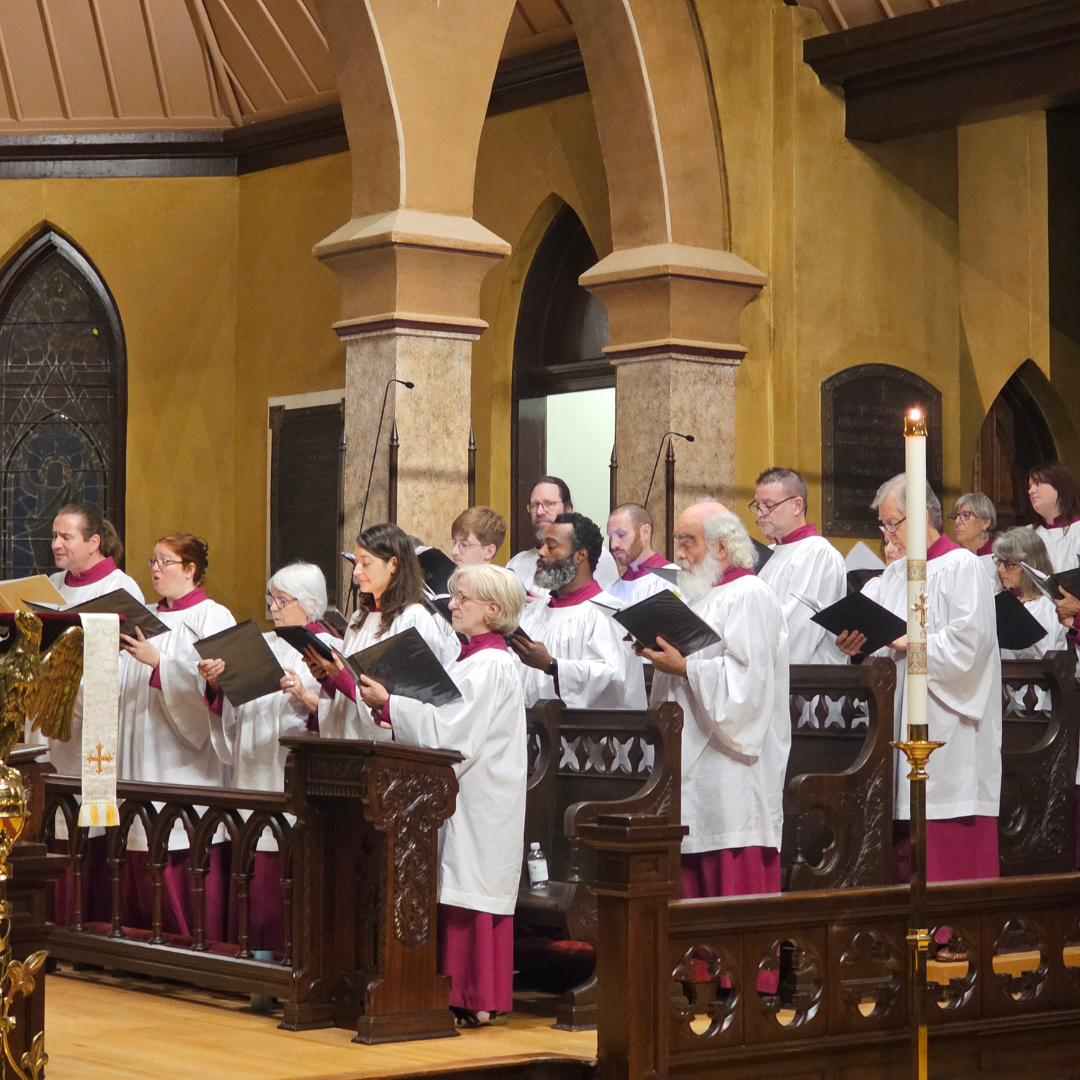
On the Third Sunday of Easter the Eucharistic focus of the Collect and Gospel and the great acclamations from the chapter 5 of the Revelation to John meet in several texts which we sing.
In each of the three years of the Eucharistic lectionary, the Gospel for this Sunday focuses on a meal which Our Lord shares with his disciples after his Resurrection: the supper at Emmaus (Luke 24, Year A), the subsequent meal with the Twelve back in Jerusalem (Year B), and the breakfast on the beach (John 21, Year C). The Collect refers specifically to the first of these: ‘O God, whose blessed Son made himself known to his disciples in the breaking of bread: Open the eyes of our faith...’
Two hymns in the Hymnal also quote this passage: ‘Come, risen Lord, and deign to be our guest’ [305], which this parish does not know, and ‘Shepherd of souls, refresh and bless’ [343], which we do, and will sing at 9:00. The latter ties together several references with sacramental overtones: the LORD’s provision of manna and water to the Israelites during their 40-year wilderness journey; Moses’s subsequent reference to the former, ‘one does not live by bread alone, but by every word that comes from the mouth of God’ (Deuteronomy 8.3, quoted by Our Lord in response to the Tempter); then the Emmaus account.
At Communion we repeat ‘Lord, enthroned in heavenly splendor’ [307], sung at the Easter Vigil (the notes for which please see); we conclude with part of ‘Alleluia! Sing to Jesus!’ [460] which, like ‘Lord, enthroned’, and following certain Epistles, sees Christ’s Resurrection, Ascension, and Reign as one unified action or truth. Also like ‘Lord, enthroned’, it connects Christ’s self-sacrificial priesthood (Hebrews 9) with the Eucharist and with a verse from the Revelation (5.9) that immediately precedes this Sunday’s portion: ‘... you [the Lamb] were slaughtered and by your blood you ransomed for God saints from every tribe and language and people and nation.’
This Sunday’s portion of the Revelation, 5.11–14, contains the acclamation ‘Worthy is the Lamb that was slain...’, famous as the ending chorus of Handel’s Messiah. Isaac Watts, pioneer of English-language hymnody, paraphrased this in the hymn ‘Come, let us join our cheerful songs’ [374], which we sing at 11:15 following this reading. It (and the reference to the redeemed from the preceding verses) also features in the last stanza of ‘Come away to the skies’ [213], a hymn written ‘On the birth-day of a friend’ (his wife?) by the greatest English hymnist of all, Charles Wesley. Part of this text is heard in an anthem setting by Alice Parker; the Hymnal portion, set to a different early American tune, also includes a reference to the ‘[marriage] feast of the Lamb’ of Revelation 19.9: the great messianic banquet to which every celebration of the Eucharist points.
Our Communion anthem (‘Most glorious Lord of life’, a sonnet by Spenser set to music by William Harris), though not directly connected to either the Gospel or the Revelation, is an Easter text whose ultimate theme, like one prominent in ‘Come away to the skies’, is love. The last quatrain and couplet read, addressing first Christ and then the poet’s wife, reads:
...and that thy love we weighing worthily,
may likewise love thee for the same again;
and for thy sake, that all like dear didst buy,
with love may one another entertain.
So let us love, dear Love, like as we ought;
Love is the lesson which the Lord us taught.




Login To Leave Comment